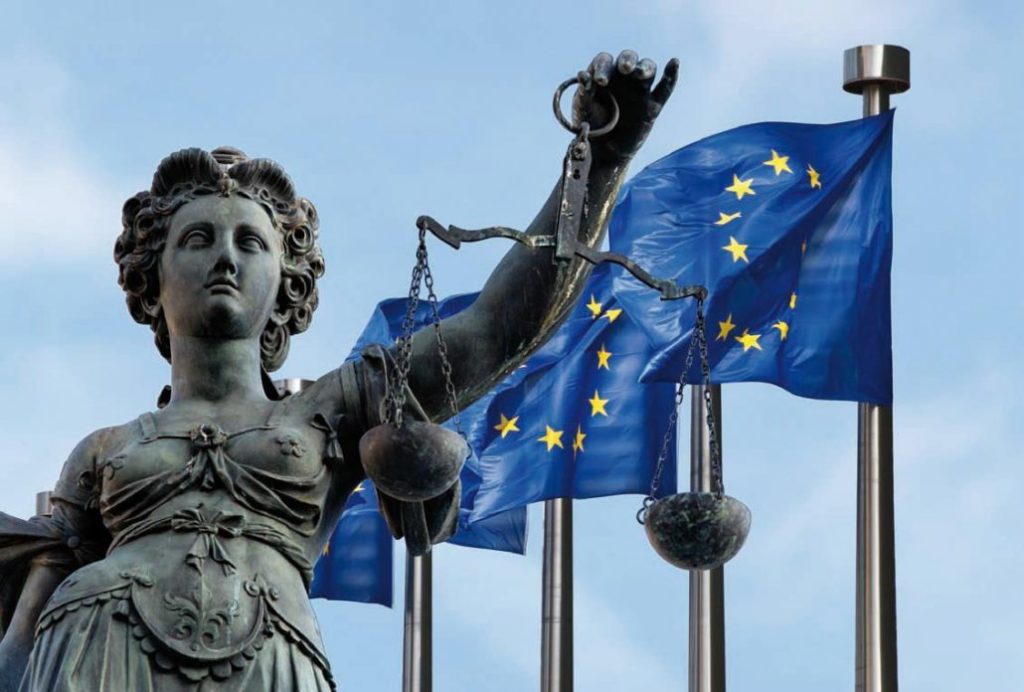It is well known that no country can claim to join the European Union without guarantees of compliance with the Copenhagen criteria formulated by the Copenhagen European Council in 1993 and reinforced by the Madrid European Council in 1995, the first of which relates to respect for the rule of law and human rights.
These criteria were supposed to be relevant not only at the time of accession, but also for the entire period of membership, as a barometer of democratic identity, regardless of the political nature of the government of each of the countries. Unfortunately, by the examples that abound, this is not the case.
Much has been debated and written, and rightly so, about the violation of the rule of law in countries such as Hungary and Poland, which left-wing parties in the European Parliament are quick to invoke as sins of the right-wing only. However, equally reprehensible events in countries like Portugal, Malta or Romania are hardly censured or condemned with the same intensity, simply because they are governed by socialist parties. This double standard is deeply cynical and does serious damage to the credibility of the European project.
Portugal currently presides over the destiny of the European Union. In the space of a few weeks, however, we have had at least two examples of what one would have thought impossible to happen in a consolidated democracy.
At the very moment when the European Public Prosecutor's Office, which is essential for the future fight against crime, particularly corruption, was created, and even more so when the extraordinary distribution of many millions of euros of funds is being planned, Portugal was one of only three countries whose Public Prosecutor had not been chosen by the committee of independent experts responsible for assessing applications. In this case, it is for what it is worth, the appointed Prosecutor benefited from false information provided by the Ministry of Justice of the country's government itself.
It is shocking to realise that at the very moment when the European Public Prosecutor's Office comes into being, rules on impartiality and the rule of law, particularly those relating to the separation of powers, which justify its very existence, are being violated. I have therefore lodged a complaint with the European Ombudsman, Emily O'Reilly.
For its part, a few days ago, Lisbon City Council, chaired by the Portuguese Socialist Party, handed the Russian regime the names and addresses of Russian citizens who took part in an anti-Putin demonstration in the country's capital.
Justifiably, the demonstrators concerned have already made known their fear not only in case they decide to return to their country of origin, but also by staying in Portugal. After all, we are talking about a democracy handing over data on demonstrators to a regime that persecutes, imprisons and in some cases eliminates opponents, even if they reside or happen to reside in other countries. What has happened is therefore simply unspeakable.
More than the violation of basic rules related to the protection of personal data, it is the human rights of citizens who are thus exposed to the arbitrariness of a dictatorship and the rules of the rule of law, which are flagrantly violated.
Regrettably, the Portuguese Government - in other words, the current EU Presidency - has played down what happened, and has not even admitted the more than obvious political responsibility. More seriously, the S&D group in the European Parliament prevented a hearing from being held of the political leaders of the Portuguese government, which would have helped to reveal everything that happened. This speaks volumes about what is at stake.
It should be remembered that there is currently a European mechanism for the rule of law, which culminates in the production of an annual report involving the Commission, the Council, the European Parliament and national parliaments. In this case, however, the European Parliament has been prevented from doing its job.
Breaches of the rule of law cannot be assessed "à la carte", depending on the political persuasion of the protagonists. When it occurs in one of the 27 Member States, it affects the entire European Union that is why the handing over of information about opponents of the Russian dictatorship is not only a Portuguese case. It strikes at the heart and essence of our common project.
MEP Nuno Melo (Portugal, EPP)


